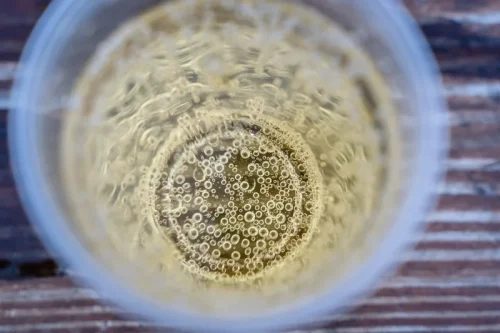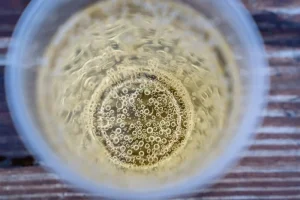
Some people are apprehensive to quit drinking due to withdrawal symptoms, but alcohol detox is the first Alcohol Detox step in treating alcoholism. As this can trigger withdrawal symptoms, it’s important to detox under the care of an alcohol detox facility that can provide 24/7 supervision. Some detox facilities provide medication to help ease both the cravings and the withdrawal symptoms. In conclusion, how many days it takes to detox from alcohol depends on the individual, but most people complete the acute phase within 3 to 10 days. However, emotional and psychological symptoms may persist longer and require ongoing treatment and support.
Benefits of medical withdrawals
While alcohol withdrawal can cause life-threatening seizures, the most dangerous complication is delirium tremens. Delirium tremens only affects3% to 5% of peoplegoing through alcohol withdrawal, but it is fatal in well over a third of cases if left untreated. Alcohol detox can lead to potentially fatal complications, especially in severe cases of alcohol dependence. Someone who may experience moderate to severe alcohol withdrawal should seek medical supervision during detox. Some individuals experience Post-Acute Withdrawal Syndrome (PAWS), where symptoms such as fatigue, irritability, and depression last for weeks or months. The length of detox is influenced by drinking history, liver function, metabolic rate, and medical intervention, with supervised detox reducing complications and improving recovery outcomes.
What Factors Influence The Timeline Of Alcohol Detox?
Engaging in sober social activities helps rewire the brain’s reward system, creating positive associations with substance-free experiences. Online support groups have become increasingly popular, offering accessibility and anonymity. Platforms like In The Rooms provide virtual meetings for various addiction recovery programs.
Why Detox Alone Can Be Dangerous
Alcohol detox involves medications, supportive care, and monitoring to help individuals safely eliminate alcohol from their system. In contrast, alcohol withdrawal encompasses the physical and psychological symptoms that arise when alcohol consumption suddenly stops. Strategies to taper off alcohol include gradually reducing intake, tracking alcohol consumption, using measured drinks, increasing hydration, and seeking medical guidance. A structured approach prevents severe withdrawal symptoms such as tremors, high blood pressure, and anxiety.

Doctors & locations
That’s why when you quit drinking, it takes time for your body to adjust. This is what causes withdrawal symptoms such as headache, fever, nausea, irregular heartbeat and hallucinations. Self-directed alcohol detox withdrawal symptoms pose serious dangers as they can produce seizures, irregular heart rhythms, dehydration and delirium tremens (DTs). DTs pose a fatal threat without proper medical care which could lead to irreversible bodily harm or death.


But when you have cleared the alcohol from your system, you will be able to start the next part of your life. Various vitamins, especially from the B group, are often used during alcohol withdrawal treatment. Intensive outpatient treatment involves a scheduled series of visits that are longer and more in-depth than a traditional outpatient program. You may do this after partial hospitalization, detox, or residential rehab. Outpatient, where you get some treatment during the day but live at home.
Inpatient treatment at a hospital or medical center isn’t as common as it used to be, but these programs make sense if you have serious medical or mental health issues. Rehab programs can include a range of services from medical care and counseling to life skills training and help to prevent a relapse. When you think about detox programs, it helps to look a step ahead to rehab.
- The Termination stage is the final phase of alcohol recovery, where individuals achieve full independence from alcohol dependence with minimal risk of relapse.
- Once you pass through the acute withdrawal symptoms, your body starts to stabilize.
- Outpatient, where you get some treatment during the day but live at home.
- Acute withdrawal symptoms include tremors, sweating, nausea, and vomiting.
Our state-specific resource guides offer a comprehensive overview of drug and alcohol addiction treatment options available in your area. The medications used will depend on each person’s unique circumstances, and a doctor must be consulted before taking anymedications for alcohol withdrawal. Those seeking detox services should check what treatments they will need, how their insurance covers detox and what options different detox centers can provide. Following successful completion of detox, an inpatient or outpatient rehabilitation program may be recommended to allow further work toward recovery and relapse prevention. A doctor or other treatment professional may evaluate for the above factors prior to making a recommendation for the level of detox care and detox timeline needed to keep a person safe and comfortable. If you have any of these risk factors, it’s important that you withdraw from alcohol at a medical facility that’s equipped to prevent and treat alcohol-related complications.
- The techniques used in alcohol recovery are Therapy and Counseling, Medications, Support Groups and Peer Networks, and Holistic Approaches.
- Alcohol withdrawal (alcohol withdrawal syndrome) is a range of symptoms that can happen if you stop or significantly reduce alcohol intake after long-term use.
- However, medical complications can occur during the acute phase of withdrawal.
- But abstinence is a high bar comparable to requiring that an antidepressant produce complete remission of depression or that an analgesic completely eliminate pain.
- Alcohol detox can lead to potentially fatal complications, especially in severe cases of alcohol dependence.
- No, it is not safe to detox from alcohol because sudden withdrawal leads to life-threatening complications such as seizures and Delirium Tremens (DTs).
- Different therapy models, including Cognitive Behavioral Therapy (CBT), Dialectical Behavior Therapy (DBT), and Motivational Interviewing (MI), have been proven effective in promoting long-term sobriety.
- But when you have cleared the alcohol from your system, you will be able to start the next part of your life.
- Exercise improves mood and cognitive function by stimulating dopamine production, counteracting the neurochemical imbalances caused by alcohol dependence.
- Physical and emotional problems that may happen during detox are called withdrawal.
- Your CNS must work harder to overcome the depressant effects of alcohol to keep your body functioning.
According to the National Institute on Alcohol Abuse and Alcoholism (NIAAA), individuals who detox without Substance abuse medical supervision have a higher risk of fatal withdrawal complications. Medically supervised detox prevents life-threatening symptoms by providing medications, supportive care, and monitoring. MAT includes medications such as Naltrexone, Acamprosate, and Disulfiram, which reduce alcohol cravings and block the rewarding effects of alcohol.

The detox process stabilizes brain chemical imbalances caused by prolonged alcohol consumption and reduces intoxication levels gradually to prevent severe withdrawal effects. FDA-approved medications play a crucial role in alcohol recovery by reducing cravings, withdrawal symptoms, and the risk of relapse. These medications work by altering neurochemical pathways affected by alcohol dependence, making it easier for individuals to maintain long-term sobriety when combined with therapy and behavioral interventions. The alcohol detoxification process is customised for each individual through multiple stages that address both short-term withdrawal symptoms and long-term recovery needs for those overcoming alcohol dependency. The stages of treatment target both immediate physical symptoms and enduring mental health consequences.
